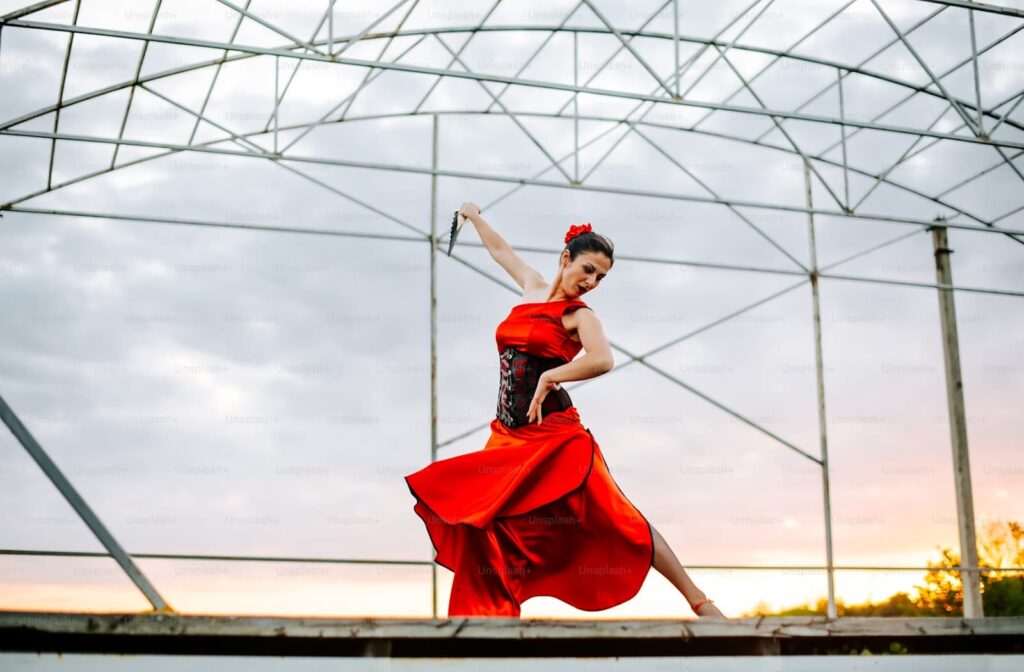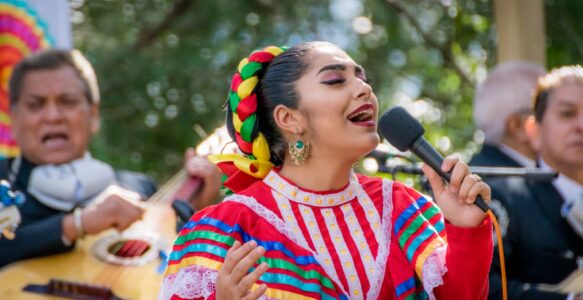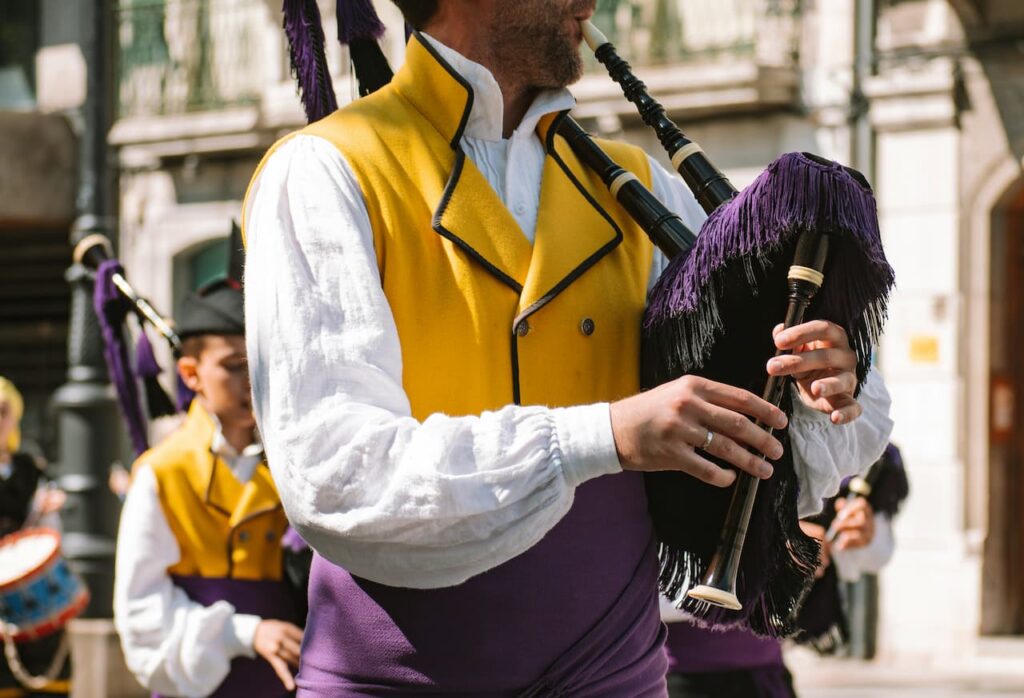Women have always been very important in keeping traditional music alive, making new music, and performing it. Despite often being overlooked, their contributions have been pivotal in shaping the musical landscapes of their respective cultures. This article celebrates the influence of female musicians in traditional music that belong to different cultures, highlighting their remarkable achievements and enduring legacy.
African Griots: Custodians of Oral Tradition
In West Africa, the griots are revered as the custodians of oral tradition, preserving the history, stories, and music of their people. Among these griots, women, known as griotesses or griottes, have held significant roles. They are not just singers and musicians but also historians and genealogists.
Sona Jobarteh, a renowned kora player from The Gambia, is a contemporary example of a woman breaking barriers in a traditionally male-dominated field. The kora, a 21-string harp-lute, has been the domain of male griots for centuries. Jobarteh’s mastery of the kora and her efforts to modernize its repertoire while respecting its traditions have garnered international acclaim. Her work underscores the vital role women play in the continuity and evolution of African musical heritage.
Indian Classical Music: Pioneers of Devotional and Classical Traditions
Female singers have been pivotal in shaping the classical and traditional music of India, contributing as performers, composers, and teachers. The bhakti (devotional) movement, which began in the medieval period, saw numerous female saints who used music to express their devotion and challenge societal norms.
Mirabai, a 16th-century Rajput princess and saint, is one of the most celebrated figures in this movement. Her bhajans (devotional songs) are sung with great reverence and have become an integral part of Indian devotional music. Mirabai’s songs, characterized by their deep spiritual fervor and lyrical beauty, have transcended time and continue to inspire generations.
In the realm of Indian classical music, Gangubai Hangal, a doyenne of Hindustani classical music, made significant contributions. Born in 1913, Hangal faced immense social stigma and personal hardships but rose to prominence with her powerful voice and emotive renditions of khayal, a genre of Hindustani music. Her dedication to her craft and her ability to convey profound emotions through her music have left an indelible mark on Indian classical music.
Native American Music: Keepers of Cultural Identity
For Native American communities, music is deeply intertwined with cultural identity and spiritual practice. Women have been pivotal in preserving and transmitting these traditions through generations.
Buffy Sainte-Marie, a Cree singer-songwriter, has been a prominent figure in promoting Native American music and culture. Her music, which blends traditional Native American sounds with contemporary folk and rock, addresses issues of social justice, indigenous rights, and environmental conservation. Sainte-Marie’s pioneering work has not only highlighted the richness of Native American musical traditions but also their relevance to contemporary issues.
Celtic Music: Tradition’s Voices and Modern Innovations
In the Celtic music traditions of Ireland and Scotland, women have been both preservers and innovators. Mairéad Ní Mhaonaigh, an Irish fiddler and singer, is a notable figure in the traditional Irish music scene. As the lead vocalist and fiddler of the band Altan, Ní Mhaonaigh has played a crucial role in bringing traditional Irish music to a global audience. Her deep understanding of the Donegal fiddle tradition, combined with her creative interpretations, has made her a respected and influential figure in Celtic music.
Similarly, Julie Fowlis, a Scottish Gaelic singer and multi-instrumentalist, has made significant contributions to Scottish traditional music. Fowlis’s commitment to singing in Scottish Gaelic and her efforts to revitalize the language through music have earned her widespread recognition. Her hauntingly beautiful voice and skillful musicianship have helped preserve and promote the rich musical heritage of the Scottish Highlands.
Flamenco: The Soul of Spain

In Spain, flamenco is not just a musical genre but a profound expression of cultural identity and emotion. Women have been at the heart of flamenco, as both dancers and singers (cantaoras).
La Niña de los Peines, born Pastora Pavón, is one of the most iconic cantaoras in the history of flamenco. Her innovative singing style and deep emotional expression set new standards for flamenco music. Pavón’s ability to convey a wide range of emotions, from profound sorrow to exuberant joy, has made her an enduring symbol of flamenco’s soul.
In contemporary flamenco, Estrella Morente stands out as a leading figure. Born into a family of flamenco artists, Morente has continued the legacy with her powerful voice and dynamic performances. She has successfully blended traditional flamenco with modern influences, bringing the genre to new audiences while honoring its roots.
South American Music: Cultural Ambassadors
In South America, women have been instrumental in the preservation and promotion of a variety of musical traditions, which are rich cultural manifestations. Mercedes Sosa, an Argentine singer, is celebrated as one of the most influential folk musicians in Latin America. Known as “La Negra,” Sosa’s powerful voice and socially conscious songs made her a symbol of resistance and hope during times of political turmoil. Her interpretations of traditional folk songs and her advocacy for social justice have left an indelible mark on South American music.
In Brazil, Maria Bethânia has been a key figure in the traditional music scene. Her deep, resonant voice and emotional performances have brought the traditional sounds of Brazilian music to audiences worldwide. Bethânia’s ability to blend traditional genres like samba and bossa nova with contemporary influences has made her a beloved and influential artist in Brazilian music.
Middle Eastern Music: Voices of Tradition
The Middle East boasts a rich tapestry of traditional music, where women have been central figures. Umm Kulthum, an Egyptian singer, is often hailed as one of the greatest Arabic singers of all time. Known as the “Star of the Orient,” her powerful voice and emotive performances captivated millions and left a lasting legacy in the Arab world. Kulthum’s ability to convey deep emotion and her mastery of classical Arabic music have made her an enduring icon in Middle Eastern culture.
In Turkey, Selda Bağcan has been a significant influence in Turkish folk music. Known for her unique voice and politically charged lyrics, Bağcan’s music blends traditional Turkish folk elements with modern influences. Her songs, which often address social and political issues, have resonated with audiences across generations, making her a prominent figure in both traditional and contemporary Turkish music.
Balkan Music: Preservers of Tradition
In the Balkans, traditional music is an essential part of cultural identity, with women playing key roles in its preservation and transmission. Esma Redžepova, known as the “Queen of Romani Music,” was a Macedonian singer who brought the vibrant sounds of Romani music to a global audience. Redžepova’s powerful voice and dynamic performances celebrated the rich musical traditions of the Romani people, highlighting their cultural contributions to the world.
Ljiljana Buttler, another influential figure in Balkan music, was known for her deep, soulful voice and her interpretations of traditional Sevdalinka songs. Born in Bosnia, Buttler’s music reflects the complex history and cultural diversity of the Balkans. Her ability to infuse traditional songs with personal expression and emotional depth has made her a beloved figure in the region’s musical heritage.
Polynesian Music: Guardians of Ancestral Songs
In the vast expanse of the Pacific, Polynesian women have played a crucial role in preserving and transmitting their ancestral music and dance traditions. In Hawaii, Genoa Keawe was a beloved figure in traditional Hawaiian music. Known for her exceptional falsetto singing and ukulele playing, Keawe’s music celebrated the traditional sounds of Hawaii. She has become a beloved figure in Hawaiian culture due to her commitment to maintaining Hawaiian musical traditions and her effect on later generations of artists.



